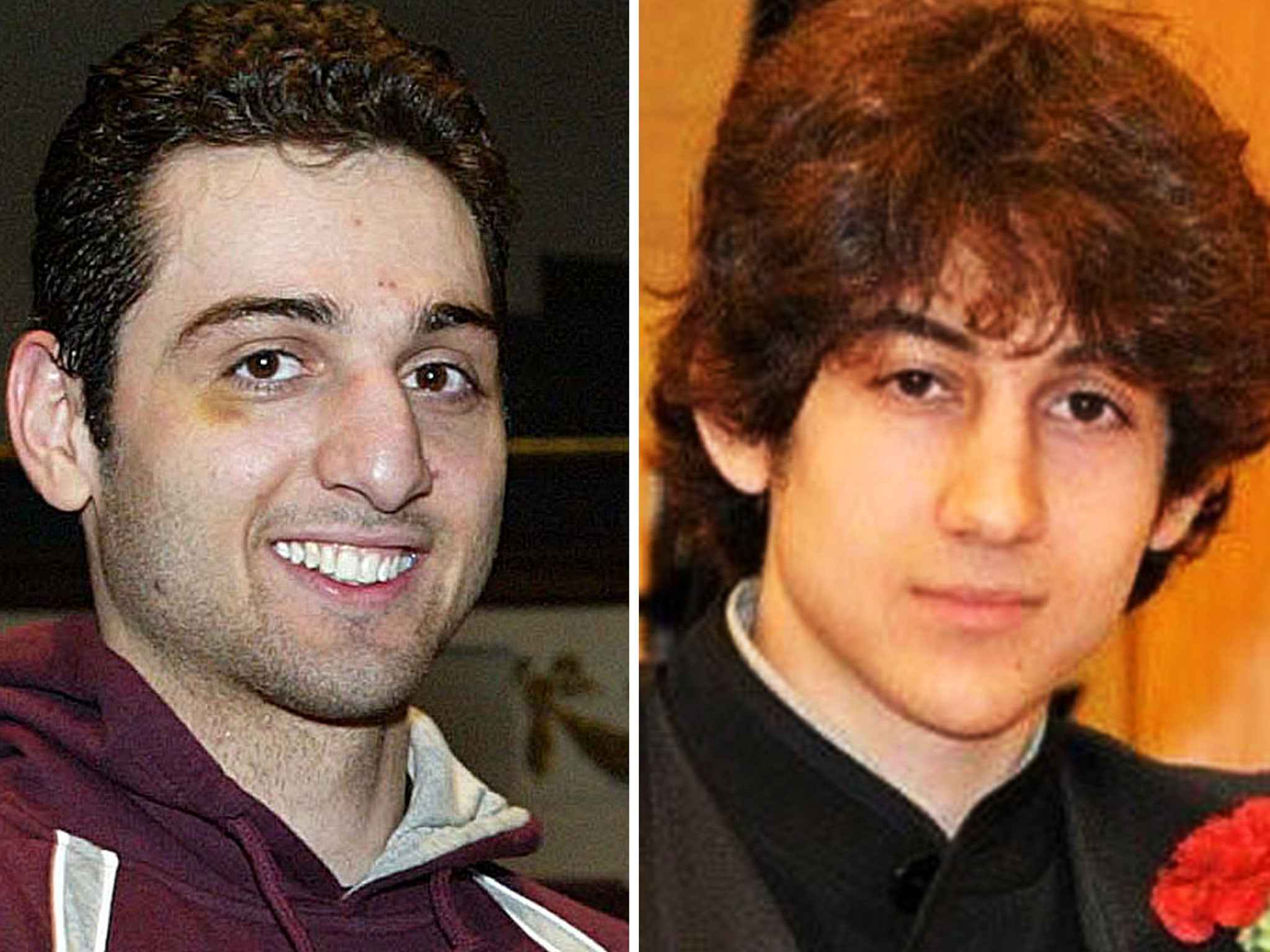
Dzhokhar Tsarnaev and his brother Tamerlan had been in the US for a decade before setting on the path that would see them carry out what many described as the deadliest act of terrorism on American soil since the attacks of September 11, 2001.
Ethnic Chechens, the brothers came to Massachusetts with their family, fleeing violence at home and hoping for a better life. They settled in the college town of Cambridge and Dzhokhar, then aged just eight, appeared to fit it.
Then on 15 April 2013, the brothers detonated two bombs made from pressure cookers at the finish line of the 2013 Boston Marathon, killing three and injuring 260. Tamerlan was killed by police after fleeing from the scene.
Dzhokhar Tsarnaev, now 28, was convicted of 30 charges related to the bombing in 2015.
On 4 March 2022, the Supreme Court reinstated the death sentence for Tsarnaev after it was vacated by an appeals court in July 2020 based on issues of jury selection and evidence.
The Trump administration had forcefully appealed for the high court to reinstate the death penalty, with then Attorney General William Barr vowing: “We will do whatever’s necessary.”
The Supreme Court agreed to take up the case after President Joe Biden took office - posing a challenge to him as he has publicly called to end capital punishment. It’s now up to Mr Biden to decide if and when Tsarnaev’s execution will take place.
Who is Dzhokhar Tsarnaev?
Larry Aaronson, a history teacher at the Cambridge Rindge and Latin High School - the alma mater of Matt Damon and Ben Affleck – told CBS that Dzhokhar Tsarnaev had been attentive pupil. He was a captain of the wrestling team.
“I know this kid to be compassionate. I know this kid to be forthgoing. He’s a great athlete, a sportsman, he’s never been in trouble,” he said. “He was just generous, he was compassionate, he was thoughtful.”

At the time he and his elder brother launched their attack at the finishing line of the 2013 Boston Marathon, Tsarnaev was a second-year medical student at the University of Massachusetts and the recipient of an $2,500 scholarship for promising student. His father said he wanted to become a brain surgeon.
The older brother was killed in shootout with police on 18 April 2013. Tsarnaev fled the shootout and was captured a day later, after being found hiding a boat in the backyard of a house in Watertown, a Boston suburb.
His family is believed to have spent a number of years in Kyrgyzstan, where Tsarnaev was thought to have have been born there in 1994.
Tsarnaev became an American citizen in 2012. Shortly before the bombing, the brothers’ father, Anzor Tsarnaev, moved back to Dagestan following a divorce from his wife.
Mr Tsarnaev told the BBC he believed the secret services had framed his sons.
His Facebook profile listed “Islam” as his world view and said his life goals as “career and money”. On the Russian social networking site VKontakte he was a member of various Chechen groups.
Shortly after the bombings, the brothers’ uncle, Ruslan Tsarni, said the brothers had “put shame on our family and on the entire Chechen ethnicity”, and noted that he had not seen his nephews since December 2005.
Lawyers for Tsarnaev sought to portray him as a troubled young man who was swayed by the powerful influence of his radicalised brother, who was shot and killed in a shoot-out with police.
Prosecutors claimed that Tsarnaev and his brother hated America, though the young man’s uncle said he had never seen any evidence of this.
Asked what might have provoked the bombings, he said his two nephews were “losers”. “These are the only reasons I can imagine of. Anything else, anything else to do with religion, with Islam, it’s a fraud, it’s a fake,” he said.
Why was the death sentence overturned on appeal?
A federal appeals court overturned Tsarnaev’s death sentence in July 2020 after ruling that the judge who oversaw the original trial did not adequately screen the jury for potential biases.
“But make no mistake: Dzhokhar will spend his remaining days locked up in prison, with the only matter remaining being whether he will die by execution,” the three-judge panel said.
Tsarnaev’s lawyers had argued that the 2015 trial was flawed for a number of reasons, including the judge’s refusal to move the case out of the Boston area. They also cited social media posts by two jurors that showed they had strong opinions about the case.
The panel of appeals judges questioned why the two jurors had not been dismissed or asked about the posts, given they had come to light before the trial began. It was noted that the Boston court has a rule obligating such questioning.
The posts included a tweet by the juror who would become the jury’s foreperson that referred to Dzhokhar as a “piece of garbage”.
The 182-page appeals court opinion states: ”A core promise of our criminal justice system is that even the very worst among us deserves to be fairly tried and lawfully punished.”
What did the Supreme Court decide?
In a 6-3 ruling on 4 March, the Supreme Court found that the federal appeals court was wrong to vacate Tsarnaev’s death sentence.
The vote was divided along lines of ideology, with outgoing Justice Stephen Breyer, Justice Elena Kagan, and, in part, Justice Sonia Sotomayor, dissenting with the ruling.
“Dzhokhar Tsarnaev committed heinous crimes. The Sixth Amendment nonetheless guaranteed him a fair trial before an impartial jury. He received one,” conservative Justice Clarence Thomas wrote in for the majority.







